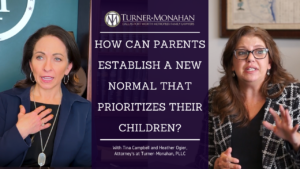
Divorce is a challenging and emotional process, especially when conflicts between spouses escalate. High-conflict divorces often involve intense disputes over assets, child custody, or support arrangements. Mediation is a valuable tool for resolving these issues, offering an alternative to the courtroom drama.
This article explores the role of mediators in high-conflict divorce cases, highlighting their importance, practical examples, and how the Texas Family Code governs this process.
For personalized advice, please contact Attorney Tyler Monahan, partner at Turner-Monahan, PLLC, to discuss your case.
Mediation in High-Conflict Divorces
Mediation is a form of alternative dispute resolution (ADR) where a neutral third party, the mediator, helps disputing spouses reach an agreement. Unlike a judge, mediators do not impose decisions; they facilitate communication and negotiation to create mutually agreeable solutions.
In high-conflict cases, mediation provides a structured environment to address contentious issues such as:
- Marriage Asset Division: Negotiating a fair division of property and financial assets.
- Spousal Support: Determining if and how much support one spouse should pay the other.
- Child Custody: Creating parenting plans that serve the best interests of the child.
Example:
Consider a couple disputing the division of a shared business and multiple properties. Without mediation, their heated disagreements might lead to lengthy and costly court battles. A mediator can help clarify their goals, address emotional barriers, and create a strategy for asset division, reducing stress and expense.
Benefits of Mediation in High-Conflict Cases
- Cost-Efficiency: Mediation is typically less expensive than lengthy court battles. For those searching for an affordable divorce attorney near me, mediation can significantly reduce legal fees.
- Confidentiality: Unlike court proceedings, mediation discussions remain private, which can help protect sensitive family matters.
- Control Over Outcomes: Mediation empowers both parties to make decisions instead of relying on a judge. This control often leads to more satisfactory outcomes.
- Preservation of Relationships: By reducing hostility, mediation can pave the way for better co-parenting relationships and minimize emotional stress on children.
When is Mediation Not Suitable?
While mediation is highly effective, it may not be suitable for all cases, such as:
Abuse or Power Imbalances: If one party exerts significant control or has a history of abuse, mediation might not ensure fairness.
Unwilling Participants: Mediation requires both spouses to engage in good faith. If one party is unwilling, it may not succeed.
For such cases, the involvement of the best divorce attorney in Fort Worth or an experienced Dallas family law attorney can provide a more appropriate path to resolution.
Practical Scenarios: Mediation in Action
Scenario 1: Division of Assets
A couple undergoing dissolution of marriage owns multiple properties, retirement accounts, and investments. Mediation allows them to outline their priorities, negotiate asset splits, and draft an agreement that avoids prolonged legal battles. Turner Monahan’s experienced attorneys can review these agreements to ensure compliance with Texas law.
Scenario 2: Child Custody Disputes
In a contested divorce involving disputes over child custody, a mediator helps parents focus on the child’s welfare. By using provisions from the Texas Family Code, mediators guide parents toward a parenting plan that courts are likely to approve.
Choosing the Right Mediator and Attorney
Selecting a skilled mediator with knowledge of family law is critical. Additionally, having the support of a qualified attorney ensures that your rights are protected during and after mediation. Turner Monahan, PLLC, offers affordable family lawyers and divorce assistance to guide you through this process.
Services Offered:
- Spousal Maintenance Attorney: Guidance on support payments.
- Prenuptial and Postnuptial Agreement Lawyers: Expertise in marital agreements.
- Military Divorce Attorneys: Specialized knowledge for military families.
- LGBTQ Divorce Attorneys: Sensitivity to unique challenges.
The Texas Family Code and Mediation
In Texas, the Family Code provides a legal framework for mediation in family law cases. Section 153.0071 of the Texas Family Code explicitly addresses the use of mediation for resolving child custody and visitation disputes. This statute highlights the importance of prioritizing the child’s best interests, a principle central to family law in Texas.
Key Provisions:
Binding Agreements: If both parties agree during mediation, the settlement becomes legally binding and enforceable unless it violates public policy or a party was coerced.
Court-Ordered Mediation: In high-conflict cases, Texas courts may order mediation to minimize litigation and encourage resolution outside of court.
Confidentiality: Statements made during mediation are confidential and cannot be used as evidence in court, fostering open and honest discussions.
Turner Monahan PLLC – Here to Support You
High-conflict divorce cases demand careful handling to ensure fair resolutions and minimize emotional strain. Mediation serves as a vital tool, fostering communication and compromise while upholding the best interests of all involved.
Turner Monahan PLLC has been a trusted name in family law for over 50 years, helping families navigate the complexities of divorce with compassion and expertise. Schedule a free, no-obligation consultation with attorney Tyler Monahan to discuss the details.
Disclaimer
The commentary and opinions are for informational and educational purposes only and not to provide legal advice. You should contact an attorney in your state to obtain legal advice concerning any particular issue or problem. You can become a client and enter the attorney-client privilege only after hiring Turner-Monahan, PPLC, by signing a written retainer agreement.



